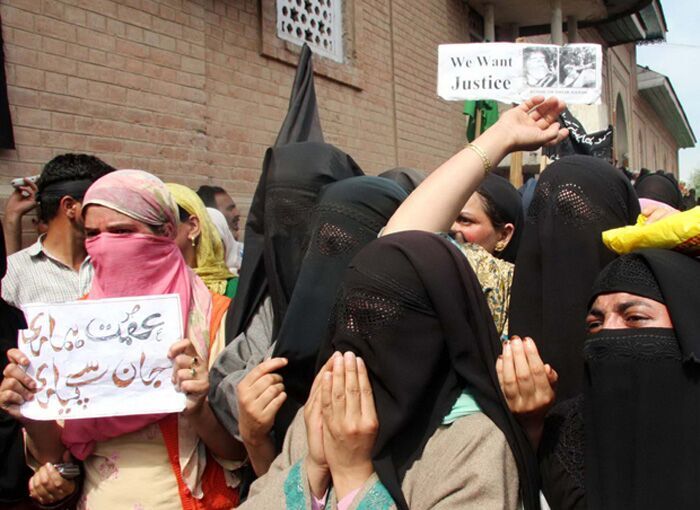
On the evening of 23 February, 1991, a group of soldiers belonging to the 4th Rajputana Rifles conducted a cordon-and-search operation in the twin villages of Kunan and Poshpora in Jammu and Kashmir's Kupwara district.
With insurgency in Kashmir at its peak during the early 90s, and the Pakistan-bordering Kupwara district being a particularly sensitive region, such search operations were more or less routine in the valley.
However, what happened next was (a): one of the greatest con acts ever pulled, as the Indian state will have you believe, or (b): more realistically speaking, given the evidence in hand, one of the biggest state-backed human rights violations in independent India.
In search of hidden weapons in the two villages, the army proceeded to separate the men from the women. However, instead of looking for weapons, the soldiers, over the next few hours, allegedly raped over 30 women in the area (the actual number remains unclear).
What happened next was a series of denials, cover-ups and blatantly-unscrupulous investigations from the state machinery. Twenty-five years on, Kunan Poshpora remains one of the worst instances of state brutality in modern-day India.
The night of 23rd February, 1991 (the allegations)
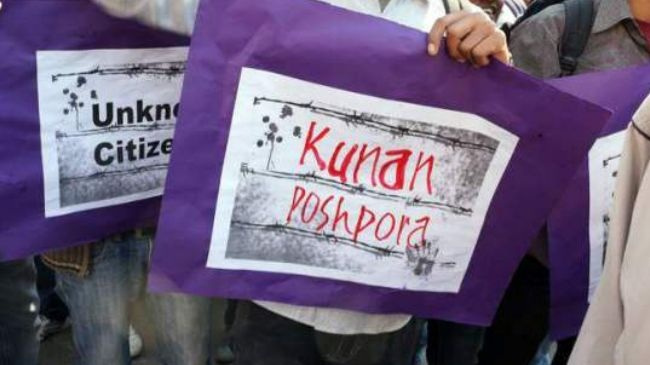
File photo
At around 11 pm on 23 February, 1991, around 125 soldiers of the 68 Mountain Brigade from 4th Rajputana Rifles stormed into the twin villages of Kunan Poshpora. The figure of 125 soldiers is recorded in the army statements.
The men were dragged out from their houses, and were made to sit barefeet on snow in makeshift interrogation centres. Some of the men allege that they were subjected to third-degree physical torture during this time.
At the same time, with the women vulnerable inside their houses, some of the soldiers came back after taking the men away.
"When the army men entered, I saw they had zips of their pants already opened and they had clearly come with the intention of raping us," one of the victims is quoted as saying in Zubaan series' recently released Do you remember Kunan Poshpora?, which is authored five young Kashmiri women activists.
Even pregnant women and teenage girls weren't spared in the ensuing savagery from the soldiers. Aged women were raped in front of their grandchildren, young mothers were raped in front of their children. The women allege that some of the soldiers had brought liquor bottles with them, and were under the influence of alcohol at the time.
"I remember begging him (the soldier), khuda kai liye humai chhod do, hum nai kuch nahi kiya. I even bowed my forehead onto his shoes. He dragged me to (the) kitchen. My mother was already there. I screamed with all my energy, Mouji meh bachaay tii (mother, save me!).
"How could she, I don't want to share all that I saw and remember happening to her. My pheran was torn, and with that, my whole life," another victim recalls in the book.
The investigations
The inner cordon on the two villages was lifted at 9 am on 24 February. The outer cordon remained for a longer period, which the villagers allege was done to prevent timely reporting of the crime.
On 25 February, the villagers sent a letter to the local Tehsildar. Deputy Commissioner of Kupwara, S M Yasin, said he received the letter of complaint on 4 March, and a First Information Report (FIR) was subsequently filed on 8 March.
On 7 March, Deputy Commissioner S M Yasin wrote to the-then Divisional Commissioner Wajahat Habibullah, "I feel ashamed to put in black and white what kind of atrocities and magnitude was brought to my notice on the spot."
However, the incident didn't come to the light of the media until mid-March. On 18 March, 1991, 23 days after the events took place, Wajahat Habibullah visited the two villages.
In a confidential report to the government, Habibullah raised doubts about the extent of the allegations, but acknowledging the anger of the villagers, he recommended a high-level investigation into the incident.
He also stated that delay in the investigation had contributed to the doubts he had cast over the incident, adding that medical examination was unlikely to be enlightening because of the long delay.
The last few details, however, were deleted when Habibullah's report was made public. It wasn't until 22 years after the incident that Wajahat Habibullah brought to light the discrepancies in the government's handling of the situation.
On the other hand, with continued public protests against the alleged mass-rape, the army requested the Press Council of India (PCI) to investigate into the matter, a few weeks after it came to light.
Led by journalist B G Verghese, a three-member committee was flown off to Kunan-Poshpora to investigate the incident in mid-June. The committee dismissed the villagers' allegations as 'bogus', and 'a dirty trick to frame the army'. In October, 1991, the case was closed by the Jammu and Kashmir Police.
Also read: Can football herald peace in strife-torn Kashmir?
A travesty of justice
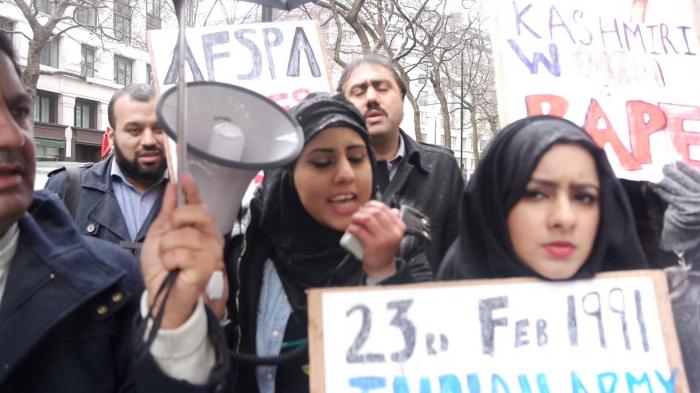
Photo: YouTube
Over the years, serious questions have been raised about the Verghese committee's investigation into the incident. For instance, the committee's medical examination of the victims revealed torn hymen among three unmarried women victims and abrasions on chest and abdomen of many victims.
"Abrasions on chest and abdomen are likely to be common among village folk in Kashmir as they hug 'kangris' or earthern pots and live coals to ward off the winter chill. As for torn hymen, this could be a result of natural factors, injury, pre-marital sex, or rape," the committee reported.
The committee refused to take into account the medical reports, citing delay in the examination. Human Rights Watch, Asia Watch and the US States Department of State rejected PCI's investigation, and criticised the Indian government's handling of the situation.
In 2011, the State Human Rights Commission (SHRC) dismissed the PCI investigation, and said that the accused soldiers had 'turned into beasts' on the night of the incident. It recommended monetary relief for the victims and criminal prosecutions of the accused.
However, there was to be no follow-up action on the SHRC recommendations. In early-2013, buoyed by the public reaction to the 2012 Nirbhaya gang-rape, a group of victims filed a PIL before the Srinagar High Court, asking for implementation of the SHRC order.
However, the PIL was not entertained by the court, which termed it premature, given that the J&K Police had filed a closure report on the case the previous month.
A country in denial
Today, the women of Kunan Poshpora continue to wait for justice. The petition filed in 2013, after being rejected on three occasions, was referred to the Supreme Court, which ordered a stay in the proceedings in March 2015.
In 2013, while visiting the state, the-then Minister of External Affairs Salman Khurshid said, "What can I say? I can only say that I am ashamed that it happened in my country. I am apologetic and appalled that it has happened in my country."
Khurshid is the first union minister acknowledge and apologise over the mass-rapes. However, his comments have done little to rid the sense of helplessness among the victims.
"The incident of mass-rape has left nothing untouched. Young and unmarried women of the twin villages have to bear the 'blot' of the incident throughout their lives. Getting married, normally an easy affair in villages, has become the most difficult thing for the girls here, after the villages stopped receiving marriage proposals," writes Samreena Mushtaq in Do you remember Kunan Poshpora?.
"It was often difficult to start conversations with the women, because they start experiencing these symptoms (of depression) if the conversation turns to that night," she later adds.
As we reach the 25th anniversary of the fateful event, it is highly unlikely that there will ever be any justice for the women of Kunan and Poshpora.
It is also unlikely that the mainstream media in India will scrutinize the events of 23 February, 1991. There won't be any mourning or public outpouring of anger for what happened in Kunan-Poshpora.
For when it comes to Kashmir, we, Indians, have managed to develop a feeling of numbness, an ability to live in denial, and there is unlikely to be any change to this state of mental inertia anytime soon.



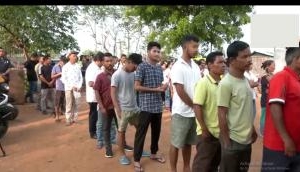
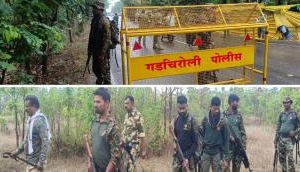

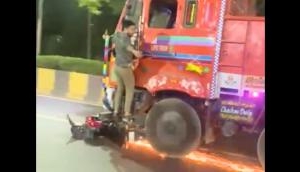
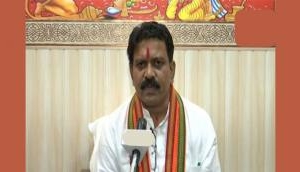
![BJP's Kapil Mishra recreates Shankar Mahadevan’s ‘Breathless’ song to highlight Delhi pollution [WATCH] BJP's Kapil Mishra recreates Shankar Mahadevan’s ‘Breathless’ song to highlight Delhi pollution [WATCH]](http://images.catchnews.com/upload/2022/11/03/kapil-mishra_240884_300x172.png)

![Anupam Kher shares pictures of his toned body on 67th birthday [MUST SEE] Anupam Kher shares pictures of his toned body on 67th birthday [MUST SEE]](http://images.catchnews.com/upload/2022/03/07/Anupam_kher_231145_300x172.jpg)






